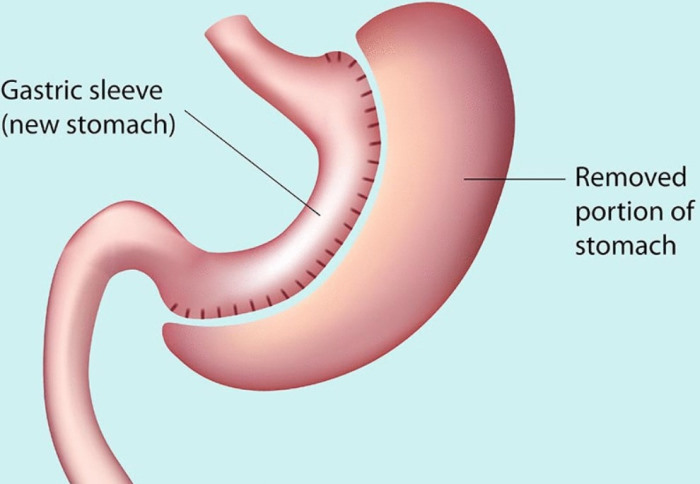Long-term, you expect to enjoy the benefits of sustained weight loss after gastric sleeve surgery. The reality, though, is that it’s a lot of hard work, both mentally and physically, rather than a magic wand. Our digestive tracts are delicately balanced to work a certain way, and even minor structural changes lead to significant adjustments. So, with gastric sleeve surgery being more than a minor change, what can you expect to deal with in the months and years post-operation?

Pain
You’ll wake up from surgery feeling very uncomfortable and sore, as is expected after any invasive surgery. The good news is that most of this pain will resolve itself during the healing process. The bad news is you may experience episodes of pain while learning how to live with your altered digestive system. Not sticking to the strict dietary restrictions required can lead to cramps, nausea, and worse until you learn to regulate food intake.
Diet Immediately Post-Surgery
Post bypass surgery, your diet will be drastically changed for the long term, but especially in the first year. The reason for this is that your stomach needs to heal and adjust after having most of the organ removed. The first week or so will be clear liquids, abruptly breaking any comfort eating habits. Then the 3-week post-op gastric sleeve diet moves to pureed, runny, and soft foods – welcome back taste. It’s essential to follow these difficult and somewhat dull eating weeks so the stomach can heal fully and minimize complications.
Mid-Term
After the first month or two, more texture can be added to foods, although it’s still vital to keep to soft, easily digested foods. You’ll also learn to eat slowly to avoid overfilling the stomach and adjust your drinking habits. Caffeine and carbonated beverages are not recommended post gastric sleeve surgery. Caffeine due to its diuretic properties, posing a dehydration risk, and carbonation due to gas build-up causing pain.
Long-Term
After the first few months with consultation from your specialist, you’ll start introducing solid foods again. Due to the stomach’s reduced capacity to extract nutrients from foods, it’ll now be easier to become deficient in essential nutrients, so supplements will become standard. Keep in mind portions will be vastly different, and some foods will need to be avoided entirely.
Exercise
Remember how I mentioned a gastric sleeve isn’t a magic wand? That’s right; now, you must start exercising to aid your weight loss. Exercise will help shift fat, strengthen muscles, and can help avoid loose skin after significant weight loss. It’s also excellent for helping the healing process, so don’t be shy about getting started with gentle exercise as soon as the doctor gives the okay.
The takeaway here is that although gastric sleeve surgery is hugely beneficial to those who have struggled with traditional weight loss methods, but it’s still hard work. You’ll have to change your diet and lifestyle completely, but the health rewards are worth the effort.
Leave a Reply
You must be logged in to post a comment.